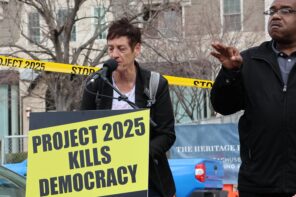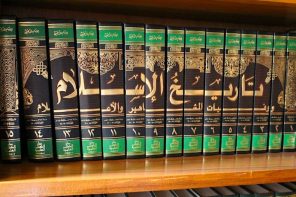For the second time since her contentious hearing for an appellate court slot, the religious practice of Amy Coney Barrett has come into question, unleashing a firestorm about what what many call an unconscionable questioning of her faith and religious practice.
The first furor came during her initial September hearing, when Sen. Diane Feinstein, referring to an article Barrett wrote about potentially having to recuse herself from death penalty cases because of her Catholic faith, questioned whether said Catholicism would prevent her from the fair adjudication of cases:
Whatever a religion is, it has its own dogma. The law is totally different. And I think in your case, professor, when you read your speeches, the conclusion one draws is that the dogma lives loudly within you, and that’s of concern when you come to big issues that large numbers of people have fought for for years in this country.
The odd Yoda-like phrasing of “the dogma lives loudly within you,” aside, Feinstein was asking a fair question about how the execution of Barrett’s religious beliefs would comport with her duties as a judge—a question that Barrett herself had raised, albeit in an article written some years ago. Barrett assured the committee that she believed it was never permissible for judges to “follow their personal convictions in the decision of a case, rather than what the law requires.”
But the reaction to Feinstein’s questioning, as well as a questions from Sen. Dick Durbin about whether Barrett considers herself an “orthodox” Catholic, was almost uniformly negative. Her line of questioning was condemned as anti-Catholic by, among others, the president of Notre Dame, where Barrett is a law professor; Princeton’s Robert George; and Archbishop William Lori, head of the U.S. bishops’ religious liberty committee.
Harvard Law School’s Noah Feldman called Feinstein’s questioning “an outrage” and said she should apologize because she suggested that “as a believing Catholic, Barrett couldn’t be trusted to apply the Constitution and laws objectively.”
Feinstein was widely portrayed as, in the words of Alexandra Desanctis in the National Review, having “attacked the nominee for her Roman Catholic faith” and unfairly imposing a “religious test” for judges. Noting that Barrett has affirmed in her writing that judges shouldn’t try to “align our legal system with the Church’s moral teaching whenever the two diverge,” Desanctis accused her of anti-Catholic bias:
Feinstein’s comments this afternoon revealed that anti-Catholic bigotry is still alive in the U.S., even, and perhaps especially, among those leftists who are the first to decry prejudice and discrimination against other minorities.
No sooner had that tempest died down, than it was stirred anew with the publication of an article by Laurie Goodstein in the New York Times that reported on Barrett’s previously undisclosed participation in a little-know charismatic Christian group called People of Praise. As Goodstein reported:
Some of the group’s practices would surprise many faithful Catholics. Members of the group swear a lifelong oath of loyalty, called a covenant, to one another, and are assigned and are accountable to a personal adviser, called a “head” for men and a “handmaid” for women. The group teaches that husbands are the heads of their wives and should take authority over the family.
Current and former members say that the heads and handmaids give direction on important decisions, including whom to date or marry, where to live, whether to take a job or buy a home, and how to raise children.
There are two things potentially disturbing about Barrett’s participation in such a group. The first is that she’s obviously way more committed to her faith as an immersive daily life experience than the average “believing” Catholic. This raises the question of the influence that the immersion in such a movement may have over Barrett’s life and thinking. She is, as Goodstein reported, a lifelong member of People of Praise; both her and her husband’s fathers were leaders in the organization.
The second is why Barrett apparently obfuscated her participation in the People of Praise. She didn’t disclose her membership in the group on the disclosure form that is standard for appellate nominees and asks them to include “all professional, business, fraternal, scholarly, civic, charitable or other organizations.” Mentions and pictures of her were also recently deleted from the group’s website, Goodstein reported..
Obviously Barrett’s participation in such a group doesn’t disqualify her from a federal judgeship. But questions about how the practices and beliefs of such a group with somewhat authoritarian, patriarchal overtones that is clearly central to her life might influence her thinking as a judge are legitimate and should have been aired at the hearing. But if anything, the backlash against Goodstein was even more fierce than the backlash against Feinstein.
Goodstein was slammed on Twitter. Ed Whelen of the Ethics and Public Policy Center called it a “hit piece” and disputed both the fact that Barrett was obliged to disclose her membership and that the Catholic Church doesn’t teach the concept of “male headship.”
As Daniel Burke of CNN noted on Twitter, it appeared to be a “well-coordinated response” to the piece: “Nominee clams up, PoP cleans up and Fed[eralist] Society attacks.”
Both responses are obviously designed to prevent the kind of rigorous questioning of a judicial nominee’s religious worldview that’s even more necessary in the post-Hobby Lobby world. The idea that a nominee’s (or a candidate’s) religion can never be questioned is a throwback to the infamous attack on John F. Kennedy by a group calling itself the National Conference of Citizens for Religious Freedom, led by Methodist minister Norman Vincent Peale, which claimed that Kennedy couldn’t be trusted to govern fairly because “his church insists that he is duty bound to admit to its direction.”
But that attack, while animated by anti-Catholic aniumus, gave Kennedy a chance to explain how his Catholicism would function in relation to his duties as a pubic servant and office holder. In his speech to the Great Houston Ministerial Association, Kennedy was able to answer clearly and forthrightly that he “believ[ed] in an America … where no public official either requests or accepts instructions on public policy from the pope, the National Council of Churches or any other ecclesiastical source” because he had obviously given extensive consideration to the question and was able to assure the public he would draw a bright line between his personal religious practice and his public duties.
Flash forward nearly sixty years and such questions are being asked in a completely different context. Law schools like Ave Maria and Regent are literally training lawyers for the culture wars. The Hobby Lobby decision showed that an ascendant conservative-Catho-Christian legal establishment has flipped the definition of “religious liberty” from an individual’s right to freedom of religious practice to the right of religious imposition on others (via an ever expanding roster of religious exemptions).
“Because so many religious people currently say they should be exempt from the laws, it is important for Senators to get all nominees to disclose just what their perspective of religion’s relationship to the law is,” Leslie Griffin, a professor of constitutional law at the University of Nevada School of Law who specializes in law and religion, told RD. “It would be very important for Senators to ask about both Catholicism and People of Praise. We need to know our judges, not hide whatever they believe. Whether Barrett thinks religion is subordinate to law—or isn’t—we should know either way,” she said.
Asking a nominee to explain how their belief system fits into their jurisprudence, especially if they come from a background with a strict religious/moral code and a bend toward evangelicalism, is not only reasonable but necessary and in no way suggests that a specific faith practice should be disqualifying. As Geoffrey Stone and Eric Segall noted in the New York Times:
…asking a nominee about her strong faith, and whether she can put her religious views aside when deciding cases that implicate those views, is nowhere close to imposing a religious test for office.
But creating a bright line around questions over a nominee’s religious beliefs effectively allows religious conservatives to game the system. Or, as Sen. Sheldon Whitehouse put it more succinctly during the Barrett hearing:
We sit here in the bizarre-o world in which we’re asked to pretend that nominees’ personal views and social views have no role, and we shouldn’t discuss them at all.
Religion and how it interacts with the public square is one of the most hot-button issues of our time. To suggest that nominees to the nation’s highest courts can’t be engaged in an honest and robust discussion of how their faith may impact their work is preposterous, as are the efforts to silence those who dare ask the questions that need to be answered.





